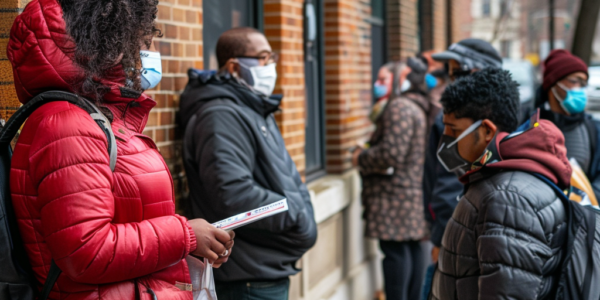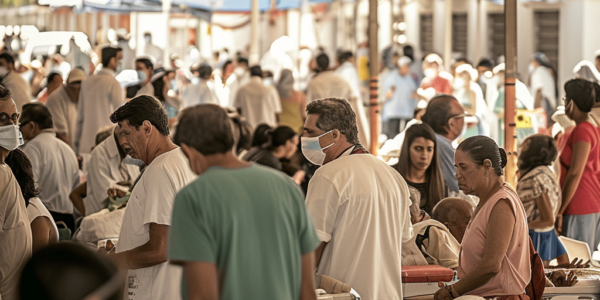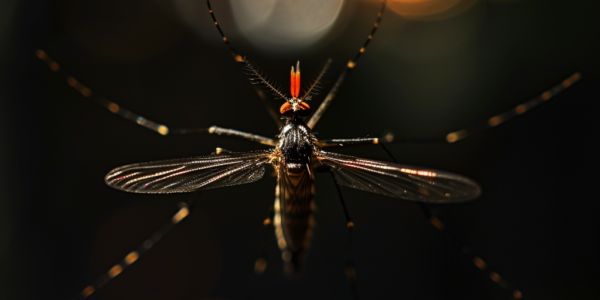Measles Outbreak at Chicago Shelter Under Scrutiny
Chicago shelter in Pilsen under scrutiny after child diagnosed with measles. New safety orders implemented for residents. Health officials working to identify those exposed. Measles investigation underway. Vaccine hesitancy linked to resurgence of measles.
Surge in Lyme Disease Cases Linked to Changes in Tracking Rules
The number of confirmed cases of Lyme disease in the United States has surged after recent changes in tracking rules. Reported cases rose by 68.5% in 2022 following updated definitions, shedding light on the true prevalence of the tick-borne disease. Health authorities are now better equipped to identify and report cases accurately, providing a clearer picture of the disease’s impact.
National Mycological Reference Centre at the Forefront of Researching New Fungal Pathogens
The National Mycological Reference Centre in Adelaide is leading research on new fungal pathogens, driven by climate change. Dr. Sarah Kidd emphasizes the importance of understanding and addressing these mutations, as changing global temperatures may contribute to the emergence of new fungal threats. The research underscores the importance of proactive measures in combating potential pandemics caused by fungal pathogens.
C.D.C. Announces New Guidelines for Isolation Periods for Covid and Respiratory Infections
The C.D.C. has announced new guidelines for isolation periods for individuals with Covid and other respiratory infections. Americans can return to daily activities if fever-free for 24 hours and showing symptom improvement. Precautions are still emphasized as individuals can still be contagious without symptoms. The guidelines also apply to influenza and respiratory syncytial virus, making it easier for people to understand and comply. Dr. Mandy Cohen highlighted the goal of the new recommendations to continue protecting those at risk for severe illness while providing clear and easy-to-follow guidelines for the public.
110 Mosquito Traps Installed at Sibu Central Market to Curb Dengue Spread
Sibu Central Market is installing 110 units of mosquito traps in collaboration with the Ministry of Health to combat the spread of dengue. The traps, designed to attract and kill aedes mosquitoes, have shown success in Peninsular Malaysia and may be expanded to other markets in the district if proven effective. With an 88% increase in dengue cases compared to last year, the initiative aims to serve as a model for controlling the disease in Sarawak.
Department of Health Issues Warning About Likelihood of New Measles Cases in Northern Ireland
Department of Health warns of potential measles outbreak in Northern Ireland and stresses the importance of MMR vaccine. With low vaccine uptake, health authorities are closely monitoring the situation and launching a catch-up campaign for individuals up to 25 years old.
Brazil Faces Surge in Dengue Fever Cases and Vaccine Shortage
Brazil is facing a significant surge in dengue fever cases, prompting a state of emergency and concerns about the country’s ability to combat the disease. The approval of the Qdenga vaccine offers hope, but limited availability has hindered widespread immunization. With a shortage of doses and a record number of deaths, the country is grappling with the impact of the climate crisis on disease proliferation.
CDC Considering Change to COVID-19 Isolation Guidance
The CDC is considering changing its isolation guidance for COVID-19, potentially advising people to rely on symptoms instead of a specific isolation period. This shift could allow individuals with mild or resolving symptoms to return to school or work. While the CDC has not officially confirmed the report, several states have already adopted similar guidelines. However, experts emphasize that testing positive for the virus still poses a risk of contagion, and caution should be exercised. The potential change reflects the evolving impact of COVID-19 and the challenges of isolation for many individuals.
U.S. Department of Health and Human Services Releases National Public Health Strategy to Prevent and Control Vector-Borne Diseases
The U.S. Department of Health and Human Services has released the National Public Health Strategy to Prevent and Control Vector-Borne Diseases in People (VBD National Strategy), marking a significant step in combating the growing threat of diseases spread by vectors such as mosquitoes, ticks, fleas, and lice. The strategy, developed by 17 federal departments and agencies, is a result of a four-year process initiated by the 2019 Kay Hagan Tick Act. This interagency plan aims to address the challenges related to vector-borne diseases and outlines federal priorities to detect, prevent, respond to, and control these diseases and conditions in the United States.
Dengue Fever Outbreak in Brazil Raises Concerns for Americas
Brazil is facing a significant outbreak of dengue fever, with health experts warning of a potential health crisis across the Americas. The Health Ministry of Brazil has issued a warning, anticipating over 4.2 million cases of dengue fever this year, surpassing the 4.1 million cases reported for all 42 countries in the region by the Pan-American Health Organization last year. Experts attribute the current amplified problem to various factors, including El Niño and climate change, leading to an increase in mosquito breeding sites. The virus is expected to progress through the continents, posing a threat to other countries.










